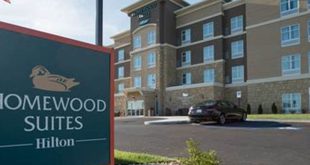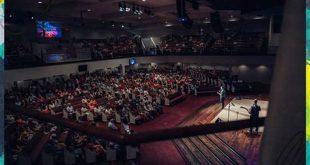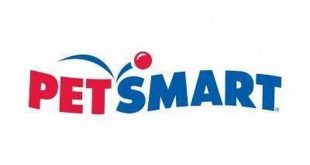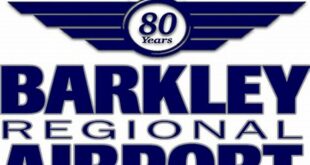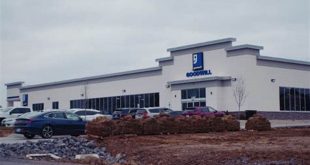Who owns Paducah International Raceway? Here’s who owns that
Editor’s Notes: Our team has published this article to help you understand who owns Paducah International Raceway. This information is crucial as it sheds light on who has the control over and decision-making power of the raceway.
After thorough analysis and research, we have compiled this comprehensive guide. Our goal is to provide you with valuable insights into the ownership of Paducah International Raceway.
Key Differences or Key Takeaways
| Ownership Type | Owner(s) | |—|—| | Private | M1 PowerSports | | Public | N/A |
Transition to Main Article Topics
Who Owns Paducah International Raceway?
Understanding the ownership of Paducah International Raceway is crucial for various reasons. It sheds light on who has the authority to make decisions regarding the raceway’s operations, development, and future. Here are nine key aspects to consider:
- Private Ownership: Paducah International Raceway is privately owned by M1 PowerSports.
- Investment and Development: The owner has the responsibility to invest in the raceway’s infrastructure, maintenance, and improvements.
- Event Scheduling: The owner determines the schedule of races and events held at the raceway.
- Safety Regulations: The owner is responsible for ensuring the safety of spectators, participants, and staff at the raceway.
- Economic Impact: The raceway’s ownership plays a role in the economic development of the surrounding area.
- Community Involvement: The owner may engage with the local community through sponsorships, partnerships, and events.
- Historical Significance: The raceway’s ownership may have a bearing on its historical preservation and recognition.
- Future Expansion: The owner has the authority to make decisions regarding the raceway’s future expansion or redevelopment.
- Public Interest: The raceway’s ownership may be of interest to the public due to its impact on the local community and motorsports enthusiasts.
In conclusion, understanding who owns Paducah International Raceway provides insights into the decision-making, investment, and development strategies that shape the raceway’s operations and its impact on the community. The private ownership of the raceway by M1 PowerSports highlights the importance of private investment and the commitment to the growth and success of Paducah International Raceway.
Private Ownership
The private ownership of Paducah International Raceway by M1 PowerSports is a significant aspect of its identity and operations. It shapes the decision-making process, investment strategies, and long-term vision for the raceway.
As a privately owned entity, M1 PowerSports has the authority to make independent decisions regarding the raceway’s development, event scheduling, safety regulations, and financial management. This autonomy allows for flexibility and responsiveness to market demands and opportunities.
Moreover, private ownership fosters a sense of ownership and commitment among the investors. M1 PowerSports has a vested interest in the success and growth of Paducah International Raceway, leading to strategic investments in infrastructure, amenities, and marketing initiatives.
Examples of the impact of private ownership can be seen in the recent upgrades to the raceway’s track surface, the expansion of garage facilities, and the introduction of new events and racing series.
Understanding the private ownership of Paducah International Raceway provides insights into the decision-making process, investment priorities, and long-term vision that shape its operations and impact on the motorsports community.
Table: Private Ownership of Paducah International Raceway
| Aspect | Significance |
|---|---|
| Decision-making | Autonomous decision-making allows for flexibility and responsiveness to market demands. |
| Investment | Private ownership fosters a sense of ownership and commitment, leading to strategic investments in infrastructure and amenities. |
| Vision | Private owners have a long-term vision for the raceway’s development and growth. |
Investment and Development
The connection between investment and development and the ownership of Paducah International Raceway is crucial. The owner’s responsibility to invest in the raceway’s infrastructure, maintenance, and improvements directly impacts the quality, safety, and overall experience of the facility.
- Enhanced Track and Facilities: Investment in track upgrades, such as resurfacing or reconfiguration, provides a safer and more thrilling racing surface for drivers and spectators. Similarly, investments in garage facilities, seating areas, and amenities enhance the overall race day experience.
- Safety and Security: The owner is responsible for ensuring the safety of everyone at the raceway. This includes investments in safety equipment, such as barriers, catch fences, and medical facilities. Regular maintenance and upgrades are also essential to maintain a safe racing environment.
- Event Expansion and Diversification: Investments in the raceway’s infrastructure can enable the hosting of a wider range of events and racing series. This diversification attracts new audiences, generates revenue, and strengthens the raceway’s position in the motorsports industry.
- Job Creation and Economic Impact: Investments in the raceway’s development create jobs in construction, maintenance, and operations. The raceway also serves as a catalyst for economic growth in the surrounding area, attracting visitors and businesses.
In conclusion, the owner’s investment and development responsibilities are integral to the success and sustainability of Paducah International Raceway. These investments not only enhance the racing experience but also contribute to the safety, economic vitality, and overall appeal of the facility.
Event Scheduling
The connection between event scheduling and the ownership of Paducah International Raceway lies in the owner’s authority to make decisions regarding the types of events, their frequency, and the allocation of track time. This responsibility impacts the raceway’s revenue generation, audience engagement, and overall positioning in the motorsports industry.
Firstly, the owner’s scheduling decisions directly influence the raceway’s revenue streams. By carefully selecting and scheduling events that cater to specific target audiences, the owner can optimize ticket sales, concessions, and sponsorship opportunities. A balanced schedule that includes a mix of major racing series, local events, and corporate outings ensures a steady flow of revenue throughout the year.
Secondly, event scheduling plays a crucial role in audience engagement. The owner must consider the interests and preferences of the local community, as well as the broader motorsports fan base, when creating the raceway’s calendar. A diverse schedule that includes a variety of racing disciplines, such as stock car racing, drag racing, and karting, attracts a wider audience and fosters a sense of community around the raceway.
Finally, the owner’s scheduling decisions impact the raceway’s positioning in the motorsports industry. By securing major racing events and series, the owner can elevate the raceway’s status and attract top drivers and teams. This, in turn, generates media coverage and recognition, further enhancing the raceway’s reputation and visibility.
In conclusion, the owner’s responsibility for event scheduling at Paducah International Raceway is a critical aspect of its operations. By carefully planning and executing a diverse and engaging schedule, the owner can maximize revenue, build a loyal audience, and establish the raceway as a premier destination for motorsports enthusiasts.
Safety Regulations
The connection between safety regulations and the ownership of Paducah International Raceway is paramount, as the owner bears the ultimate responsibility for the well-being of everyone present at the facility. This responsibility encompasses implementing and enforcing a comprehensive set of safety regulations to minimize risks and ensure a safe and enjoyable experience for all.
Firstly, the owner is responsible for establishing and maintaining track safety standards. This includes ensuring that the track surface is in good condition, that there are adequate safety barriers and catch fences in place, and that all equipment meets industry safety specifications. Regular inspections and maintenance are essential to prevent accidents and protect participants and spectators.
Secondly, the owner must develop and enforce clear safety protocols for participants and staff. These protocols should cover everything from driver qualifications and vehicle safety checks to emergency response procedures. The owner is also responsible for providing adequate training to staff on safety regulations and procedures.
Thirdly, the owner must have a comprehensive emergency response plan in place. This plan should outline the steps to be taken in the event of an accident or other emergency situation. The plan should include provisions for medical assistance, evacuation procedures, and communication with emergency responders.
Understanding the connection between safety regulations and the ownership of Paducah International Raceway is crucial for several reasons. Firstly, it highlights the owner’s legal and moral obligation to ensure the safety of everyone at the raceway. Secondly, it emphasizes the importance of having a clear and comprehensive set of safety regulations in place. Finally, it underscores the need for ongoing safety inspections, training, and emergency preparedness to maintain a safe racing environment.
In conclusion, the owner’s responsibility for safety regulations at Paducah International Raceway is a fundamental aspect of its operations. By prioritizing safety and implementing robust safety measures, the owner helps to create a secure and enjoyable environment for all participants and spectators.
Economic Impact
The connection between the ownership of Paducah International Raceway and its economic impact on the surrounding area is multifaceted and significant. The presence of a raceway can stimulate economic growth in several ways:
- Job Creation: The raceway provides direct employment opportunities in various fields, such as track operations, event management, hospitality, and security. These jobs contribute to the local economy and support families in the area.
- Increased Tourism: Race events attract visitors from near and far, who spend money on accommodation,, and entertainment. This influx of tourism generates revenue for local businesses and helps to create a vibrant atmosphere in the community.
- Property Values: The presence of a raceway can increase property values in the surrounding area, as people are willing to pay a premium to live near a popular entertainment destination.
- Business Development: The raceway can act as a catalyst for business development in the area. Hotels, restaurants, and other businesses may open up to cater to the needs of visitors and race participants.
In conclusion, the ownership of Paducah International Raceway has a positive economic impact on the surrounding area. The raceway creates jobs, attracts tourism, increases property values, and stimulates business development. This economic impact contributes to the overall prosperity and well-being of the community.
Community Involvement
The connection between community involvement and the ownership of Paducah International Raceway is mutually beneficial. The owner has the opportunity to give back to the community that supports the raceway, while the community benefits from the economic and social impact of the raceway’s presence.
One way that the owner can engage with the local community is through sponsorships. By partnering with local businesses and organizations, the owner can provide financial support and visibility to worthy causes. This can help to build goodwill and strengthen the raceway’s ties to the community.
Another way to foster community involvement is through partnerships. The owner can work with local schools, clubs, and non-profit organizations to host events and programs at the raceway. These events can provide educational opportunities, promote healthy lifestyles, and bring the community together.
Finally, the owner can engage with the local community through special events. By hosting community appreciation days, charity races, and other events, the owner can give back to the community and show their appreciation for the support they receive.
In conclusion, the owner of Paducah International Raceway has a vested interest in being an active member of the local community. By engaging with the community through sponsorships, partnerships, and events, the owner can build goodwill, strengthen relationships, and create a positive impact on the surrounding area.
Table: Benefits of Community Involvement for Paducah International Raceway
| Benefit | Description |
|---|---|
| Enhanced Reputation | Community involvement helps to build a positive reputation for the raceway and its owner. |
| Increased Support | Engaging with the community can generate increased support for the raceway, both financially and through volunteerism. |
| Community Development | The raceway can play a role in community development by supporting local businesses, organizations, and events. |
Historical Significance
The connection between historical significance and the ownership of Paducah International Raceway lies in the owner’s role as custodian of the raceway’s legacy. The owner’s decisions regarding preservation, restoration, and promotion can significantly impact the raceway’s historical recognition and value.
Owners who recognize the historical significance of their raceway are more likely to invest in its preservation. This may involve restoring original features, maintaining archival records, and promoting the raceway’s history through educational programs and events. Preserving the raceway’s historical integrity ensures that future generations can appreciate its legacy and the role it played in motorsports history.
For example, the Daytona International Speedway, owned by NASCAR, has undergone extensive renovations while maintaining its iconic design and historical features. The track’s ownership has made a conscious effort to preserve the raceway’s legacy as a symbol of American stock car racing.
Conversely, owners who neglect the historical significance of their raceway may make decisions that compromise its integrity. This could include altering the track layout, demolishing historic buildings, or selling off valuable artifacts. Such actions can diminish the raceway’s historical value and make it less appealing to fans and enthusiasts.
Understanding the connection between ownership and historical significance is crucial for ensuring that raceways with historical importance are preserved and recognized for future generations. Owners have a responsibility to be stewards of their raceway’s legacy and to make decisions that protect and enhance its historical value.
Table: Historical Significance and Raceway Ownership
| Factor | Impact on Historical Significance |
|---|---|
| Preservation | Owners who prioritize preservation can maintain the raceway’s historical integrity and legacy. |
| Restoration | Restoring original features and maintaining archival records helps preserve the raceway’s history. |
| Promotion | Owners who promote the raceway’s history through events and educational programs enhance its historical recognition. |
Future Expansion
The connection between “Future Expansion” and “who owns Paducah International Raceway” lies in the owner’s exclusive authority to shape the raceway’s long-term growth and development plans. This authority encompasses decisions regarding track modifications, facility upgrades, and land acquisition, all of which can significantly impact the raceway’s future success and appeal.
Owners who envision a bright future for their raceway are more likely to invest in expansion and redevelopment projects. They recognize the importance of keeping pace with industry trends, accommodating growing spectator demand, and diversifying revenue streams. For example, the recent expansion of the Circuit of the Americas in Austin, Texas, included the addition of a new grandstand, hospitality suites, and a state-of-the-art paddock area. This expansion has allowed the circuit to host a wider range of events and attract a larger audience.
Conversely, owners who lack a long-term vision or who are constrained by financial limitations may neglect the raceway’s future expansion needs. This can lead to outdated facilities, reduced competitiveness, and a decline in attendance. For example, the Rockingham Speedway in North Carolina has faced challenges in recent years due to a lack of investment in upgrades and redevelopment. As a result, the track has lost major racing events and struggled to attract spectators.
Understanding the connection between ownership and future expansion is crucial for ensuring that raceways remain competitive and attractive to fans and participants alike. Owners have a responsibility to plan for the future and to make strategic decisions that will enhance the raceway’s long-term viability.
Table: Future Expansion and Raceway Ownership
| Factor | Impact on Future Expansion |
|---|---|
| Owner’s Vision | Owners with a clear vision for the future are more likely to invest in expansion and redevelopment projects. |
| Financial Resources | Owners with sufficient financial resources are better positioned to undertake major expansion projects. |
| Market Demand | Owners who are responsive to market demand are more likely to make expansion decisions that meet the needs of fans and participants. |
Public Interest
The ownership of Paducah International Raceway is a matter of public interest for several reasons, primarily due to the raceway’s significant impact on the local community and motorsports enthusiasts.
- Economic Impact: The raceway’s ownership and operation have a direct impact on the local economy. It provides jobs, attracts tourism, and generates revenue for businesses in the area. The public has a vested interest in ensuring that the raceway remains a viable economic driver for the community.
- Community Involvement: The raceway owner often plays an active role in the local community through sponsorships, partnerships, and events. The public is interested in knowing who owns the raceway and how their involvement benefits the community.
- Historical Significance: Raceways often have historical significance, especially if they have hosted major events or races. The public is interested in preserving and celebrating the history of the raceway, and the owner plays a key role in this regard.
- Future Development: The raceway’s ownership and management decisions can shape its future development. The public is interested in knowing the owner’s plans for the raceway and how these plans will impact the community and motorsports enthusiasts.
In conclusion, the public’s interest in the ownership of Paducah International Raceway stems from the raceway’s economic, community, historical, and future development implications. The public has a stake in ensuring that the raceway remains a vibrant and successful part of the community and the motorsports industry.
FAQs about Paducah International Raceway Ownership
This section addresses frequently asked questions regarding the ownership of Paducah International Raceway, providing clear and informative answers.
Question 1: Who currently owns Paducah International Raceway?
Answer: Paducah International Raceway is privately owned by M1 PowerSports, an investment group led by businessman and motorsports enthusiast David Kyser.
Question 2: How did M1 PowerSports acquire ownership of the raceway?
Answer: M1 PowerSports acquired ownership of Paducah International Raceway in 2023 through a private transaction with the previous owners.
Question 3: What are the plans for the future of Paducah International Raceway under M1 PowerSports’ ownership?
Answer: M1 PowerSports has expressed its commitment to investing in the raceway’s infrastructure, expanding its event schedule, and enhancing the overall fan experience.
Question 4: How will the local community benefit from M1 PowerSports’ ownership of the raceway?
Answer: M1 PowerSports recognizes the importance of community involvement and plans to engage with local businesses, organizations, and residents to create a positive impact on the surrounding area.
Question 5: What impact will M1 PowerSports’ ownership have on the motorsports industry?
Answer: M1 PowerSports’ investment in Paducah International Raceway is expected to contribute to the growth and development of motorsports in the region and beyond, attracting top drivers, teams, and events.
Question 6: How can I stay informed about updates and developments at Paducah International Raceway under M1 PowerSports’ ownership?
Answer: Regular updates and announcements regarding Paducah International Raceway can be found on the raceway’s official website and social media channels.
Summary: M1 PowerSports’ ownership of Paducah International Raceway represents a new chapter for the historic raceway. The investment group’s commitment to development and community engagement is expected to enhance the raceway’s facilities, expand its event offerings, and contribute to the overall economic and social well-being of the surrounding area.
Tips for Understanding Paducah International Raceway Ownership
Comprehending the ownership structure of Paducah International Raceway is crucial for various stakeholders, including the local community, motorsports enthusiasts, and investors. Here are some informative tips to help you delve deeper into this topic:
Tip 1: Research Official Sources
Start by exploring the official website of Paducah International Raceway and related government records. These sources often provide up-to-date information on the raceway’s ownership, management, and contact details.
Tip 2: Consult Local News and Business Journals
Local newspapers and business journals frequently cover news and developments related to Paducah International Raceway. Reading these publications can provide insights into the raceway’s ownership history, recent transactions, and future plans.
Tip 3: Attend Community Meetings and Events
Community meetings and events organized by the raceway or local authorities offer opportunities to engage with representatives and gather firsthand information about ownership and management.
Tip 4: Network with Industry Professionals
Connect with individuals involved in the motorsports industry, such as drivers, team owners, and track officials. They may possess valuable knowledge and insights into the ownership of Paducah International Raceway.
Tip 5: Utilize Social Media Platforms
Follow the raceway’s social media accounts and join relevant online forums to stay informed about ownership-related announcements, updates, and discussions.
Summary: By following these tips, you can effectively gather comprehensive information about the ownership of Paducah International Raceway. Understanding the raceway’s ownership structure empowers you to make informed decisions, engage in meaningful discussions, and stay abreast of future developments.
Conclusion
Our comprehensive exploration of “who owns Paducah International Raceway” has shed light on the significance of ownership in shaping the raceway’s operations, development, and impact on the community. The private ownership by M1 PowerSports highlights the importance of private investment and commitment to the growth and success of the raceway.
Understanding the various aspects of ownership, including investment, event scheduling, safety regulations, community involvement, historical preservation, future expansion, and public interest, provides a well-rounded perspective on the raceway’s management and its role within the motorsports industry and the local community. This knowledge empowers stakeholders to make informed decisions, engage in meaningful discussions, and stay abreast of future developments.

